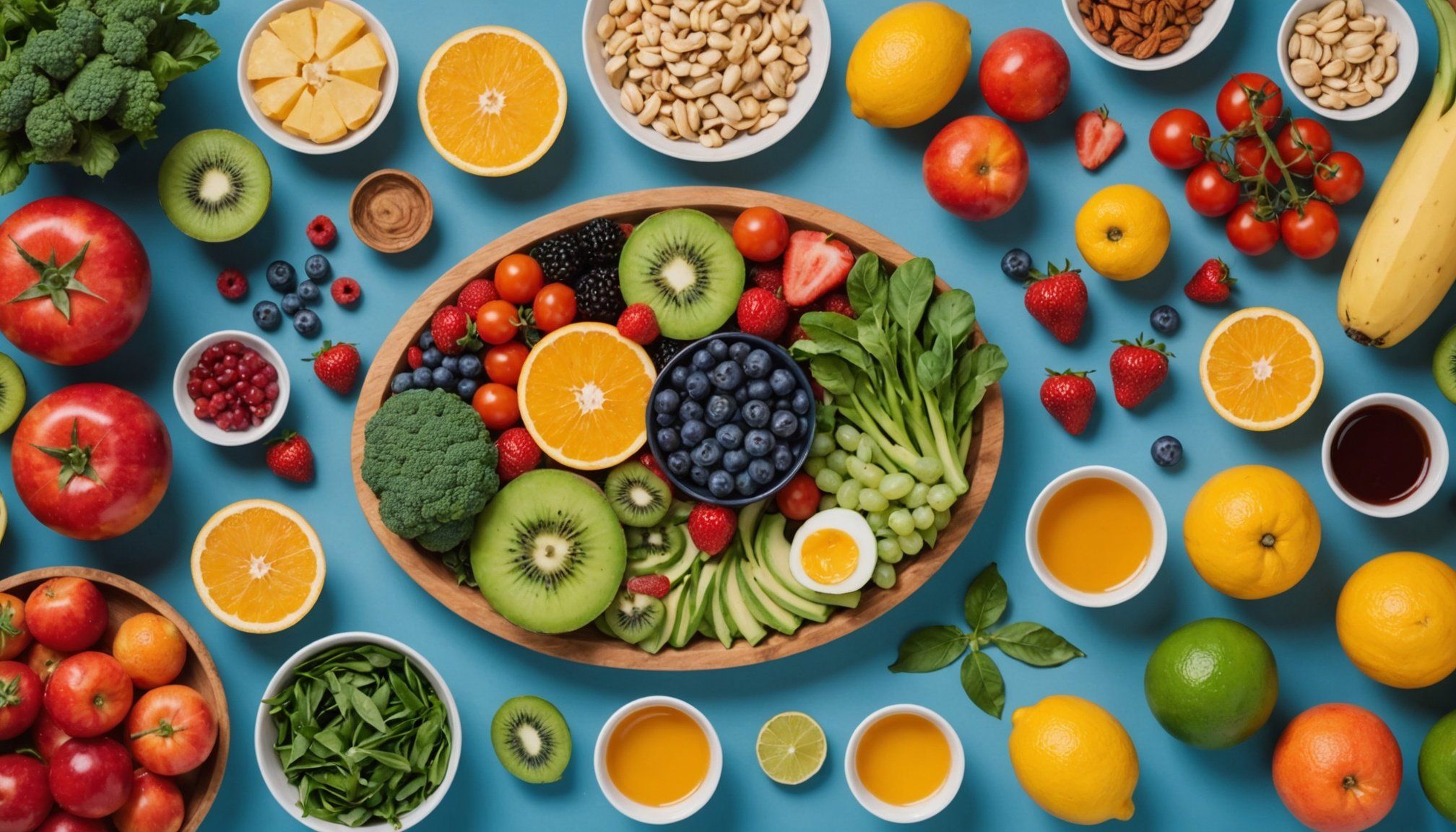In today’s fast-paced world, the relationship between mental health and nutrition is garnering more attention. With the growing prevalence of mental health disorders, many are turning their focus to natural ways of improving their well-being. Nutrition, a fundamental aspect of overall health, plays a vital role in mental health. This connection, often overlooked, offers promising insights into managing and potentially alleviating mental health symptoms. In this article, we will delve into how mental health and nutrition interact, affecting our overall well-being, backed by insights from scholarly sources like PubMed and CrossRef, as well as practical knowledge from everyday experiences.
The Role of Nutrition in Mental Health
Nutrition is more than just food; it is a crucial element in maintaining optimal mental health. The brain, an organ like any other, requires specific nutrients to function properly. An imbalance or deficiency in these nutrients can lead to various mental health issues, including depression and anxiety.
Also read : What preventative measures can individuals take to reduce the risk of developing colon cancer?
The Impact of Diet on Brain Function
Proper nutrition is essential for brain function. According to studies published in PubMed, a balanced diet rich in essential vitamins and minerals directly influences brain chemistry and neuronal health. The brain consumes about 20% of our body’s energy, which is derived from the food we eat. Therefore, poor eating habits can lead to inadequate fuel for the brain, resulting in cognitive decline and mood swings.
The Gut-Brain Connection
Recent research highlights the importance of the gut-brain axis, suggesting that the gut microbiome significantly affects mental health. A healthy gut can promote a positive mood, while an unhealthy one can lead to stress and anxiety. Probiotic foods like yogurt and fermented foods have been shown to enhance gut health, thereby potentially improving mental health.
Also read : How does the gut-brain axis influence mental health conditions like anxiety and depression?
Foods That Boost Mental Health
Certain foods have been identified as mood boosters. Omega-3 fatty acids, found in fish and flaxseeds, support brain function and mood regulation. Additionally, antioxidants in fruits and vegetables help combat oxidative stress, which is linked to depression. Ensuring a balanced diet with these foods can enhance mental clarity and emotional stability.
The Mental Health Impact of Poor Eating Habits
Poor eating habits can have far-reaching effects on mental health. For many people, the consequences of a nutritionally deficient diet may manifest in various mental health symptoms, affecting their day-to-day lives.
The Link Between Junk Food and Depression
The consumption of processed and high-sugar foods is linked to increased risks of mental health issues. Studies from Google Scholar show a correlation between diets high in sugar and refined carbohydrates and the development of depression and anxiety. This is due to the rapid spikes and crashes in blood sugar levels, which can destabilize mood and energy levels.
The Vicious Cycle of Emotional Eating
Emotional eating, a common response to stress, often involves consuming comfort foods high in sugar and fat. This coping mechanism can lead to a cycle of negative emotions, as these foods provide temporary relief but worsen the underlying mental health issues over time. Breaking this cycle is crucial for improving mental well-being.
Symptoms of Nutritional Deficiencies and Mental Health
Deficiencies in nutrients like B vitamins, iron, and magnesium are also associated with symptoms such as fatigue, irritability, and anxiety. Addressing these deficiencies through healthy dietary choices or supplements can alleviate some of these mental health symptoms, paving the way for improved overall well-being.
Incorporating Nutritional Strategies for Better Mental Health
Implementing nutritional strategies can significantly enhance mental health and contribute to better overall well-being. By making informed dietary choices, individuals can support their mental health naturally.
Prioritizing a Balanced Diet
A balanced diet is the cornerstone of good mental health. Ensuring a mix of macronutrients and micronutrients is vital. Whole grains, lean proteins, and healthy fats should form the basis of daily meals. Colorful fruits and vegetables add necessary vitamins and minerals, supporting brain health.
Proactive Meal Planning
Planning meals ahead of time can help avoid unhealthy food choices that may harm mental health. By preparing meals at home, individuals can control food quality and portion sizes, making it easier to stick to a nutritious diet.
Mindful Eating Practices
Mindful eating encourages awareness of hunger and fullness cues. Paying attention to eating habits can help identify emotional eating patterns and prevent overeating. This practice promotes a healthier relationship with food, which can positively impact mental health.
Exploring Nutritional Research
Staying informed about the latest nutritional research through reliable sources like PubMed and CrossRef can provide valuable insights. As research evolves, understanding the connection between nutrition and mental health can help in making beneficial dietary changes.
The Future of Mental Health and Nutrition
The future of mental health care is evolving, with an increasing emphasis on the role of nutrition. As we gain more understanding of how diet influences mental health, new opportunities for prevention and treatment emerge.
Integrative Approaches to Mental Health
Integrative medicine, which combines conventional treatments with lifestyle changes, is gaining traction. Nutrition is a key component of this approach. By adopting dietary changes alongside traditional treatments, individuals may experience improved outcomes and enhanced quality of life.
Personalized Nutrition Plans
Personalized nutrition plans tailored to individual needs and genetic predispositions are becoming more common. These plans consider factors such as metabolism, dietary preferences, and specific mental health concerns, offering a customized approach to support mental well-being.
Educating the Public
Raising awareness about the connection between nutrition and mental health is crucial. Educational campaigns and resources can empower individuals to make informed dietary choices. Additionally, collaborations between healthcare providers and nutrition experts can facilitate access to healthy eating guidelines.
Emphasizing Research and Innovation
Ongoing research is essential for uncovering new insights into how nutrition affects mental health. By investing in scientific studies and innovative solutions, we can develop effective strategies to promote mental well-being through diet.
In conclusion, recognizing the interaction between mental health and nutrition is vital for fostering overall well-being. By understanding this connection, individuals can take proactive steps towards a healthier life.
The intricate connection between mental health and nutrition underscores the importance of considering dietary choices as part of a comprehensive approach to well-being. As research continues to unveil the profound impact of nutrition on mental health, individuals have the opportunity to harness the power of food to enhance their mental and emotional health. By prioritizing balanced diets, exploring innovative nutritional strategies, and staying informed about the latest research, we can pave the way for a brighter, healthier future. Ultimately, recognizing the role of nutrition in mental health empowers individuals to take charge of their well-being, fostering a holistic approach to living well.











